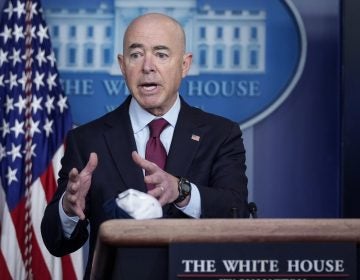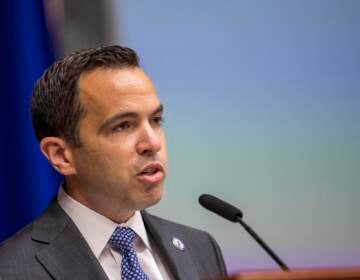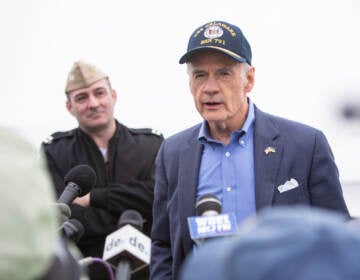‘We are complicit in their misery’ says Sen. Tom Carper of Delaware after border visit
Delaware’s senior U.S. Senator says the U.S. has an obligation to improve conditions in Central America so migrants have less need to try to escape to the U.S.
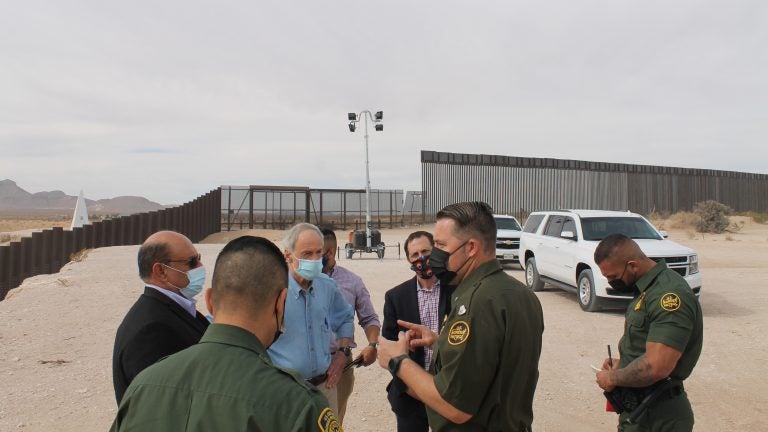
U.S. Sen. Tom Carper (in blue) of Delaware talks with members U.S. Border Patrol near El Paso, Texas. (courtesy Carper's office)
As hundreds of migrants seek refuge from the poverty and violence in Central America, U.S. Sen. Tom Carper of Delaware says America’s appetite for drugs is partly to blame.
“We are complicit in their misery,” Carper said Wednesday morning outside the Latin American Community Center in Wilmington.
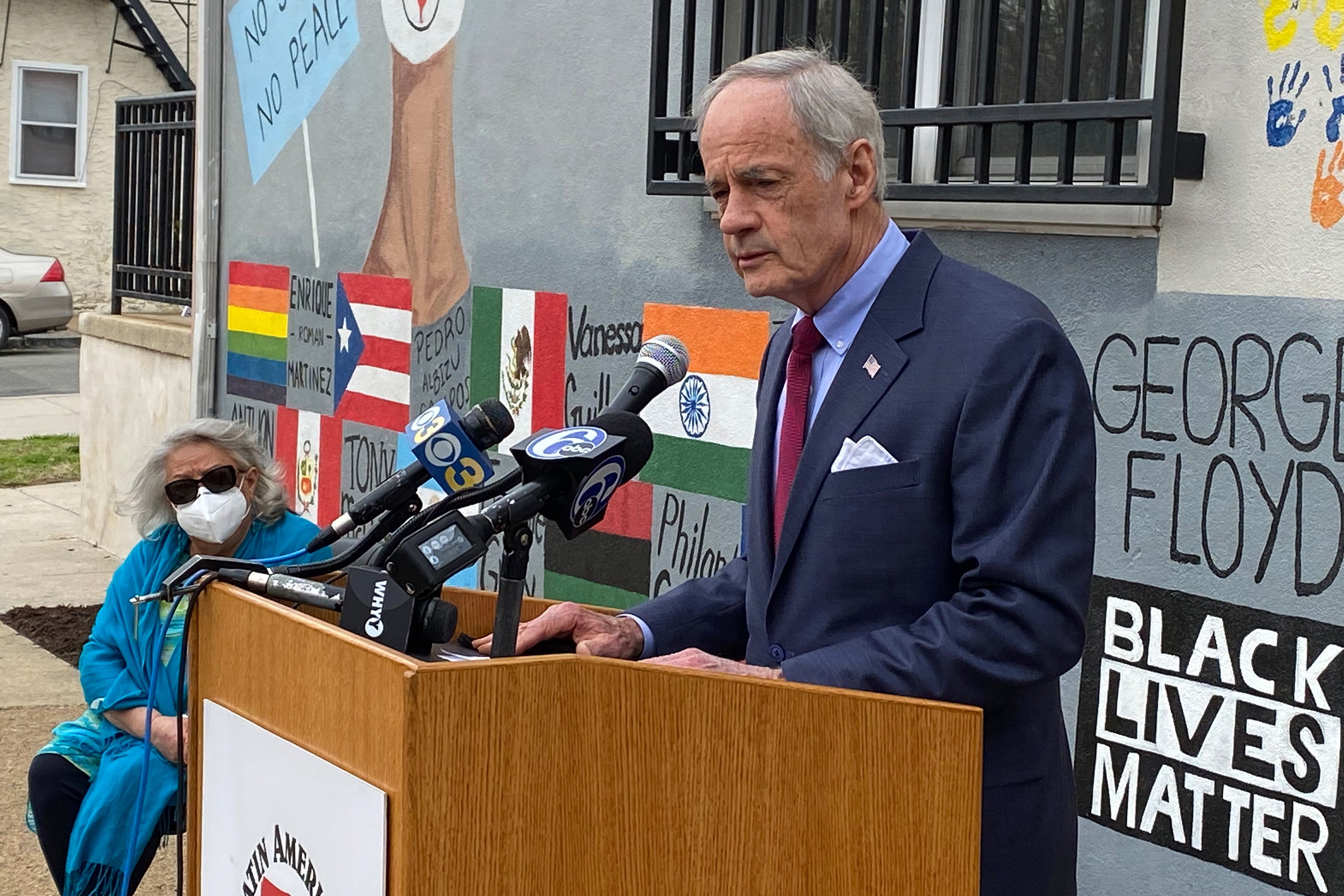
He says the flow of illegal drugs through Honduras, Guatemala, and El Salvador corrupts officials in those countries and that ends up corrupting their economies, leading to poverty and hunger.
“If we didn’t have an addiction to these drugs, frankly, little of that would happen,” he said. “We have this addiction, drugs are trafficked, and it has just created hell in these three countries.”
Carper returned to Delaware around 2 a.m. Wednesday after visiting the border near El Paso, Texas, with stops at the El Paso Centralized Processing Center and the Fort Bliss Emergency Intake Site.
“I talked to hundreds of kids down there,” he said. “Despite all they’ve been through, for the most part, they were happy. They had a lot of scrapes, and I could see they’ve been through a tough, tough journey, but they were happy. They were grateful.”
More than 80% of the unaccompanied minors hoping to cross the border for asylum come from the Northern Triangle countries of Honduras, Guatemala, and El Salvador.
He says he had high hopes for success for the leaders of those countries — former president Jimmy Morales in Guatemala, Juan Orlando Hernández in Honduras, and Nayib Bukele in El Salvador — but that hasn’t panned out.
“I mentored them, Joe Biden mentored them as Vice President, and they have just gone bad.”
He said Morales ran on a platform of being “neither a thief nor a crook,” and he ended up becoming both. Hernández is accused of colluding with organized crime groups and taking a bribe from cocaine traffickers. Bukele has been accused of acting like a dictator after sending heavily armed soldiers into El Salvador’s parliament after it failed to approve a loan for better military equipment.
Carper also blamed the Trump administration for not ensuring those leaders were honest over the past few years.
“Rather than trying to make sure that the leaders of these countries were toeing the line, spending the money that we sent them in the appropriate ways, the last administration would frankly look the other way. They were more transactional,” he said. “If the governments of Honduras, Guatemala and El Salvador would agree to put their embassy and Jerusalem there instead of Tel Aviv, then we would look the other way. That’s crazy.”
In a 2019 visit to the region, Carper touted the Alliance for Prosperity, a USAID program started under the Obama administration to help stabilize the region and improve economic opportunities. He was optimistic that with the right funding, the program could help improve conditions in the three countries.
But that funding was reduced by hundreds of billions of dollars under the Trump administration.
“In March of 2019, President Trump suspended most foreign aid to the Northern Triangle. This decision dwarfed our presence in the region, weakening bonds of cooperation and slashing the economic and diplomatic aid that proved effective in reducing migration,” he said. “We have to make the Alliance for Prosperity not just a piece of paper and not just an idea. We have to make it reality.”
Not having official ambassadors in some of the Northern Triangle countries has also hurt.
“We have not had a U.S. ambassador in Honduras for three years, more than three years. Right now, we don’t have a U.S. ambassador and in Guatemala,” Carper said.
He said there has to be a bigger answer than simply taking better care of those who arrive at the border.
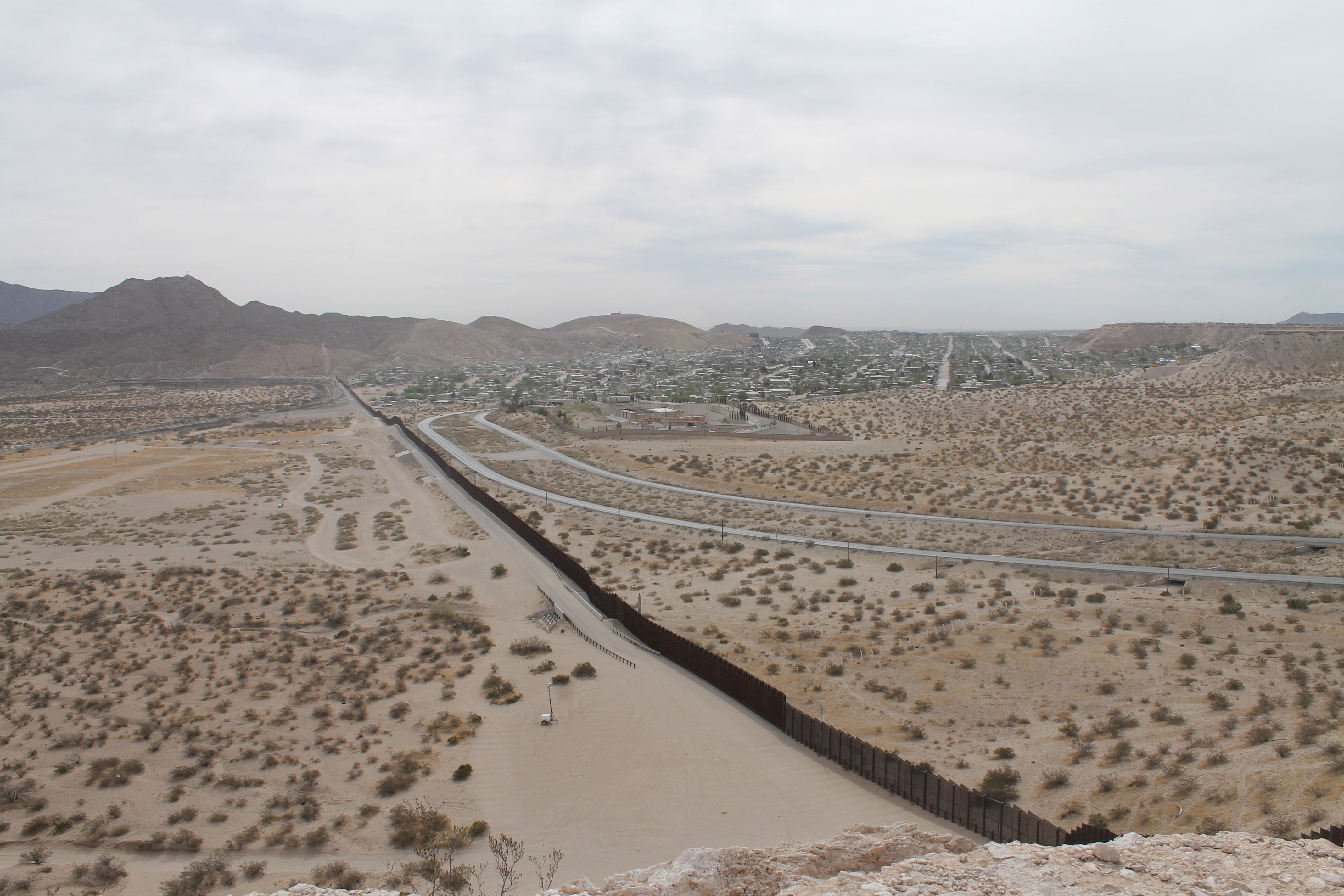
“If all we do is take them in, try to place them with their relatives, more and more kids will come, more refugees will come if that’s all we do. And we’ve got to be able to walk and chew gum at the same time and we have to make a plan.”

Get daily updates from WHYY News!
WHYY is your source for fact-based, in-depth journalism and information. As a nonprofit organization, we rely on financial support from readers like you. Please give today.



